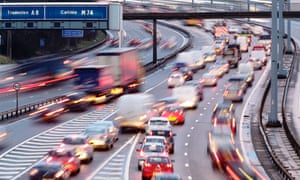Cheap credit and petrol have got Britain motoring but the Bank of England must hit the controls at the right time

The UK ends 2015 as one of the fastest growing of the major developed economies. Unemployment is falling, the housing market is hot and consumers are happy to spend money in the shops or online. For at least the first half of 2016 it will be a case of more of the same. The reason is simple. The UK economy has plenty of momentum thanks to almost seven years of zero interest rates, rising living standards and government incentives to buy property. Even if there was a sudden nasty shock, it would take time for the effects to show up.
As it happens, recent developments have been positive for growth. The fact that motorists can find petrol for less than a pound a litre reflects the tumbling price of oil on the global commodity markets. That will cut business costs and raise corporate profits while at the same time cutting domestic heating bills and the cost of travel.
Falling oil prices will also limit the pick-up in inflation, which has been lower for longer than most forecasters expected a year ago. For most of 2015, inflation has hovered at around zero, and there is no immediate prospect of it rising back to the government’s 2% target. Low inflation means the Bank of England is under little immediate pressure to raise the cost of borrowing, and plentiful supplies of cheap credit are providing a further fillip to growth. Mortgage rates have never been lower.
For all these reasons, 2016 looks likely to get off to a flying start. Adam Slater, economist at the consultancy firm Oxford Economics, says he expects the US and the UK to compete for the title of fastest-growing economy in the G7 group of industrial nations.
The second half of 2016 is more uncertain. One obvious factor is the referendum on Britain’s membership of the European Union. If the result looks like being close, there could be a short-term impact on confidence and investment decisions that would be prolonged if there was a vote for Brexit.
There are, though, other risks to the economy. One is that the Bank of England leaves it too long to raise interest rates and then slams on the brakes when inflationary pressures start to appear. Over the past seven years, the UK has become used to rock-bottom borrowing costs; nobody is quite sure what the reaction will be to a tightening of policy.
A diametrically opposite risk is that Threadneedle Street acts too hastily and sees inflation when it is not really there. The Bank has been making soothing noises about the eventual increases in interest rates being slow and limited, but other central banks around the world have been forced to backtrack after raising borrowing costs.
David Owen, managing director at the City firm Jefferies International, said the Bank could move more quickly than the financial markets expect. “In terms of timing, we still view May as a possibility for the first rate rise, but only if there is convincing evidence of wages picking up in the key January-April pay round,” Owen said.
The UK’s growth was unbalanced in 2015 and that pattern is set to continue. Weak demand in the eurozone, the UK’s most important overseas market, coupled with a rise in the value of the pound, has made life tough for exporters. Meanwhile, solid growth in consumer spending has sucked in imports. So, two things to look out for in 2016 are whether the City starts to fret about the size of Britain’s balance of payments deficit and whether the Bank uses its new powers to rein in the housing market.
[Source:-the gurdian]
